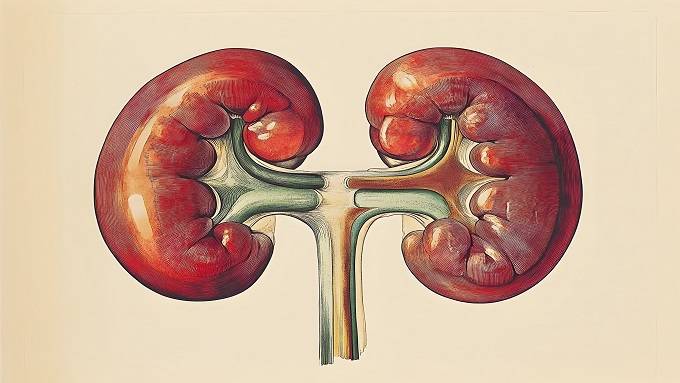Accreditation Number: 10/C/C3/DT.05.00/2025
Editorial Policies
- Focus and Scope
- Section Policies
- Peer Review Process
- Publication Frequency
- Open Access Policy
- Archiving
- Plagiarism Statement
- Publication Ethics
- Article Processing Charge
Focus and Scope
Majalah Biomorfologi (Biomorphology Journal - MBIOMJ) aims to publish scientific papers with an open-access policy that focus on the variation and modulation of basic and functional biomorphology in humans.
The scope of this journal includes anatomy, histology, and bioanthropology. The manuscript contains analysis at the levels of biomolecular, cellular, tissue, organ, and body systems. We also welcome studies based on animal models related to disease and/or abnormalities that occur in humans.
Section Policies
ORIGINAL RESEARCH REPORT
SCOPING REVIEW
SYSTEMATIC REVIEW AND/ OR META-ANALYSIS
CASE SERIES WITH SCOPING REVIEW DISCUSSION
Peer Review Process
The submitted manuscript will be subjected to a double anonymous peer-review to assess the originality of the topic and its contribution to the body of science, the soundness of theory and methodology, analysis coherence, and communicability to the readers. The double-anonymous peer-review means that the identities of both reviewer(s) and author(s) are concealed from each other throughout the review process. The review process is conducted by at least two independent peer reviewers. When two independent peer-reviewers have opposing decisions, the editor-in-chief will make the final decision. The whole process takes approximately 5–15 weeks.
Publication Frequency
Majalah Biomorfologi (Biomorphology Journal-MBIOMJ) is published twice a year (January and July).
Open Access Policy
This journal provides immediate open access to its content based on the principle that making research freely available to the public supports a greater global exchange of knowledge.
This journal (p-ISSN:0215-8833; e-ISSN:2716-0920) is licensed under a Creative Commons Attribution 4.0 International License.
Archiving
This journal utilizes the CLOCKSS system to create a distributed archiving system among participating libraries and permits those libraries to create permanent archives of the journal for purposes of preservation and restoration.
Plagiarism Statement
The submitted manuscript must be free from plagiarism. Also, it must pass the turnitin screening at a rate of less than 20% with no similarity of more than 10 words in a sentence. Any manuscript that does not meet this requirement must be revised by its authors prior to re-submission. Authors must obtain permission to reproduce any copyright material and include an acknowledgement of the source in their article. Authors must be aware that the unreferenced use of published and unpublished ideas, writings, or illustrations by others from any source (including research grant applications) or submission of a complete paper under 'new' authorship in the same or a different language constitutes plagiarism.
Publication Ethics
Universitas Airlangga, as the publisher of Majalah Biomorfologi (Biomorphology Journal - MBIOMJ), takes its duties of guardianship at all publishing stages seriously, and we recognize our ethical and other responsibilities. We are committed to ensuring that neither advertisement, re-printing, nor additional commercial revenue has any impact and/or influence on the editorial decision. When necessary, editorial boards assist in communication with other parties and/or publishers.
The ethical rules of conduct are established by all parties involved in publishing articles in this journal, including the authors, the editor-in-chief, the editorial board, peer reviewers, and the publisher. This statement is adopted by the Committee on Publication Ethics (COPE), the World Association of Medical Editors (WAME), and the Initiative for Open Citations (I4OC).
Editors Responsibilities
- Publication decisions: Editors, based on evaluations from the editorial board, have the authority to accept, reject, or request modifications to the submitted manuscripts. They are required to maintain high publication standards and preserve the integrity of the academic content.
- Manuscript review: Editors are responsible for managing the peer review process with fairness and discretion. They should elaborate on this process in the information for authors and specify which sections of the manuscript are subject to peer review. Editors must choose reviewers with sufficient expertise and ensure that there are no conflicts of interest involved.
- Editors must ensure that all manuscripts submitted are within the aims and scope of Majalah Biomorfologi and follow the proper citations.
- Fair play: Editors are required to ensure that every manuscript submitted to the journal is assessed objectively for its scholarly merit, without any discrimination based on the authors' sex, gender, race, religion, ethnic origin, citizenship, or political philosophy. The assessment process must be in accordance with APA language guidelines.
- Confidentiality: Editors must keep the confidentiality of all manuscripts, sharing information only with authorized reviewers. Confidential discussions are kept private, except in exceptional cases.
- Disclosures and conflicts of interest: Editors must ensure not to use any unpublished content from a submitted manuscript for their own work without acquiring written consent from the author. Any privileged information or ideas obtained during the editorial process must be regarded as confidential and not be exploited for personal benefit.
- The Editorial Board makes the final decision and publication; the author may appeal this decision, but the Editor-in-Chief will decide on the manuscript.
Reviewers Responsibilities
- The manuscript undergoes a double-blinded peer-review process, meaning both the author and peer reviewer are unknown to each other. This process ensures that the anonymity of both authors and peer reviewers is maintained for an unbiased assessment.
- Confidentiality: All information related to manuscripts submitted by authors must be regarded as confidential and privileged. Therefore, it must not be shared or discussed with other parties unless explicitly authorized by the editor.
- Contribution to editorial decisions: Peer reviewers play a significant role in the editorial process by collaborating with editors in making publication decisions. Through constructive feedback in the editorial communication, reviewers can also support authors in enhancing the quality of their manuscripts, reinforcing the collaborative nature of scientific endeavor.
- Standards of objectivity: Reviewers are required to evaluate manuscripts objectively. Their comments must be comprehensible, well-reasoned, and evidence-based. The given feedback must be constructive and intended to help authors improve their work.
- Promptness: Reviewers should respond to the review invitations promptly. If the reviewer feels unqualified to review the manuscript or is unable to complete the review at the appointed time, they are required to inform the editor immediately so that another reviewer can be assigned.
- Acknowledging sources: Reviewers must be able to recognize any relevant published work that has not been cited by the authors. If a manuscript includes observation, derivation, or argument that appears to be based on existing publications, all these references must be provided appropriately. In addition, reviewers are required to notify editors of any substantial similarity or significant overlap between the manuscripts with other works, either published or unpublished.
- Disclosure and conflicts of interest: Privileged information or ideas acquired during the peer review process must be regarded as confidential and not utilized for personal advantage. Manuscripts with a conflict of interest arising from competitive, collaborative, or other relationships with any of the authors, affiliated institutions, or companies involved must be declined by the reviewers.
Authors Responsibilities
- Reporting manuscript standards: Authors must present an accurate account of the original article (original research report, systematic review and/or meta-analysis, scoping review, and case series with scoping review discussion), as well as an objective discussion. A manuscript should contain sufficient detail and references to permit others to replicate the work. Authors should present their results objectively, honestly, and without fabrication, falsification, or inappropriate data manipulation. Fraudulent or knowingly inaccurate statements constitute unethical behavior and are unacceptable. The author(s) must disclose any applicable funding sources and conflicts of interest, and submit, along with the manuscript, the ethical clearance for the original research report or the signed informed consent for study participation and publication from the patient(s) and/or legal guardian(s) for the case study articles. The author must follow the study type checklist and ensure that no academic dishonesty or ethical misconduct occurred.
- The author must actively engage in the peer-review process and thoroughly address all comments of the reviewers. Adherence to these guidelines ensures ethical publication practices and upholds the integrity of the research.
- The author must complete and upload all necessary documents, which are available for download.
- Originality and Plagiarism: Authors must ensure that the submitted work is original and has not been published elsewhere. The manuscript should not be submitted concurrently to more than one publication. All relevant previous works and publications should be acknowledged and referenced properly by other researchers, as well as the author's work.
- Please be advised that all manuscripts submitted to the Majalah Biomorfologi (Biomorphology Journal - MBIOMJ) will be screened for plagiarism and duplication. Authors are required to paraphrase all reference citations in their own words. This process is crucial to prevent any misunderstandings regarding plagiarism. When a particular citation would lose its original meaning and essence if paraphrasing is attempted, the journal requires authors to enclose the citation in quotation marks (" ”) to indicate that it is a direct quote from the source. However, excessive quotation marks are discouraged and should be utilized only when necessary. Majalah Biomorfologi (Biomorphology Journal - MBIOMJ) enforces a zero-tolerance policy toward plagiarism. Failure to comply with these instructions will result in manuscripts being rejected outright without peer review, and appropriate action will be taken.
- If plagiarism is found after the manuscripts are published, Majalah Biomorfologi (Biomorphology Journal – MBIOMJ) will follow the guidelines of Web of Science (WoS) outlined in the Retractions, Corrections and Expressions of Concern section, which is also in line with COPE’s Retraction Guidelines.
- Data access and retention: Authors may be requested to provide the raw data along with their study for editorial review. Therefore, they must be ready to give access to the data and make it publicly available.
- Duplicate and redundant publications (dual submission): Authors are not permitted to submit the same research or publish substantially similar content in more than one journal. If multiple publications are based on a single research project, this should be stated obviously, and the original publication must be cited appropriately.
- Submissions that are identical (or substantially similar) to those previously published, accepted for publication on any platform previously, or that have been submitted in parallel to other conferences are not appropriate for submission to Majalah Biomorfologi (Biomorphology Journal - MBIOMJ) and violate our submission policy. Therefore, these submissions will not be further processed. The editors reserve the right to immediately reject all submissions that they deem to be excessively similar by the same authors. "Shotgun submissions” are unacceptable, as they are unfair to authors who submit single original papers and place an additional strain on the review process.
- Authors must acknowledge all data sources utilized in their study and reference any publications that significantly influenced the nature of their research. It is important to acknowledge the contributions of others properly.
- Authorship of the paper: Research publications should accurately reflect individuals' contributions to the work and its reporting. The authors ensure that all authors have seen and agreed to the submitted version of the manuscript. Other co-authors who have made significant contributions must be listed. Authorship should be limited to those who have contributed significantly to the conception, design, execution, or interpretation of the reported study.
- Disclosures and conflicts of interest: Authors are required to disclose any financial or significant conflicts of interest that may influence the outcomes or interpretation of the manuscript. In addition, they are required to report all sources of funding that supported the research project.
- Fundamental Errors in Published Works: If the author discovers an error or inaccuracy in their submitted manuscript, they should promptly notify the journal editor or publisher and cooperate with the editor to correct the paper. The author(s) must ensure that their submitted manuscript is free from fallacy, fabrication, falsification, and plagiarism. If we encounter the previously mentioned cases, Majalah Biomorfologi (Biomorphology Journal – MBIOMJ) will follow the guidelines based on the guidance of COPE.
- Hazards and Human or Animal Subjects: The author should identify in the manuscript if the work involves chemicals, procedures, or equipment that have any unusual hazards inherent in their use. If the work involves animals or human participants, the authors must ensure that all procedures comply with relevant laws and institutional guidelines and that the appropriate institutional committee(s) have approved them; the manuscript should contain a statement to this effect. The authors should also include a statement in the manuscript that informed consent was obtained for experimentation with human participants. The privacy rights of human participants must always be observed. Please follow the protocols of the World Association of Medical Editors (WAME) and comply with the Declaration of Helsinki.
- Subject consent forms: Subjects have the right to privacy, which should not be infringed upon without informed consent. Identifying details (written or photographic) should be omitted if they are not essential, but subject data should never be altered or falsified in an attempt to attain anonymity. Complete anonymity is difficult to achieve, and a consent form should be obtained if there is any doubt. For example, masking the eye region in photographs of subjects is an inadequate protection of anonymity. When informed consent has been obtained, it should be indicated in the published article.
- Withdrawal and retraction of a manuscript: The author(s) can request withdrawal of a submitted manuscript via email to the Editor-in-Chief, and it must be done before the manuscript undergoes the review process. It cannot be granted if a withdrawal is requested during or after the review process. The retraction guidelines and withdrawal request of the published article are carried out by the editorial board, which must follow the protocols of COPE.
- Ethics committee approval: Authors must sign a declaration that affirms that their study was conducted based on the guidelines provided below and relevant local laws. The editors reserve the authority to determine the appropriateness of using humans or animals in experiments submitted for publication.
- Human experiments: All work involving human participants must be conducted based on the principles of the Declaration of Helsinki. Manuscripts describing experimental work on human participants that involve potential risks must include: (1) a declaration that states that the experiments were carried out with the given understanding and informed consent of each participant, and (2) a statement that explains that the research was approved by an appropriate ethics committee.
- Animal experiments: For studies experimenting on living animals, authors are required to: (1) provide a detailed explanation of any anesthesia and surgical methods used, (2) provide evidence that all possible efforts were conducted to minimize animal suffering at every experiment stage. In experiments involving the utilization of muscle relaxants, authors must explain that precautions are taken to ensure that proper anesthesia is conducted. For experiments using isolated tissues, authors must describe the source of the donor tissue precisely. Guidelines from the NIH Guide for the Care and Use of Laboratory Animals must be followed for the acquisition and care of animals.
- The authors must ensure that the study using animal models adheres to the Replacement, Reduction, and Refinement (3Rs) principles for animal subjects and follows the ARRIVE.
Article Processing Charge
We do not apply any publication charges, including submission and processing charges.


































